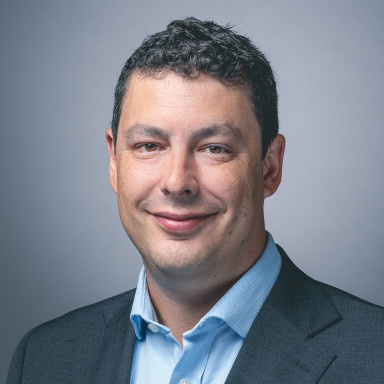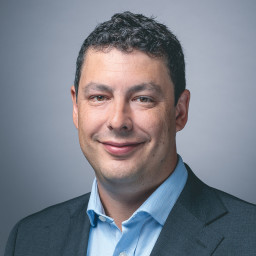The trust is widely diversified and invests across a range of different asset classes in private and public markets
The trust’s managers aim to capture some market rises and offer some shelter to investors' capital when markets fall
The trust has provided attractive levels of growth over the long term, although past performance is not a guide to the future
How it fits in a portfolio
RIT Capital Partners aims to deliver long-term growth, while offering some shelter to investors' capital when stock markets are weaker. The trust's managers do this by investing in a range of assets, such as individual company shares, private investments, share and bond funds, real assets, including property and gold, currencies, and absolute return funds.
The trust could be an option for some modest long-term growth or provide exposure to areas of the market that are difficult to access for retail investors.
Investors in closed-ended funds should be aware the trust can trade at a discount or premium to Net Asset Value (NAV).
Manager
RIT Capital Partners launched in 1988 and is managed by J. Rothschild Capital Management (JRCM), making it one of the only self-managed trusts in its sector. It is made up of two committees and an experienced investment department to ensure everything runs as efficiently as possible.
JRCM's executive committee, led by newly appointed CEO Maggie Fanari, is responsible for looking after the day-to-day management of the trust. Fanari was previously Senior Managing Director and Global Group Head of High Conviction Equities at the Ontario Teachers’ Pension Plan.
The investment committee works closely with the broader investment team who source opportunities for the trust and generate recommendations for potential investments. They meet on a weekly basis to discuss the suitability of the recommendations and make final decisions on what the trust invests in and its overall risk profile.
Nick Khuu, Chief Investment Officer, is a member on both committees and joined J. Rothschild Capital Management in 2020. He was previously Managing Director at Adi Capital Management as well as prior roles at Knighthead Capital Management and Dune Capital Management. Khuu can call upon the support of the in-house investment department for ideas, challenge or analysis, but can also use external investment managers to take charge of part of the portfolio and invest on the trust's behalf.
There has been a significant amount of change to the leadership team at JRCM over the last 12 months. While some of the individuals who are in new roles have worked at the company for a number of years, the departure of the previous CEO and CIO in such a short space of time will likely have caused disruption. The new team is committed to running the trust in the same way as their predecessors and as Fanari has been a non-executive director on the Board of RIT Capital Partners since April 2019, we don’t expect there to be any significant change of approach.
Process
The investment team uses a distinctive ‘six cylinder’ framework to manage the trust and determine what they invest in. The idea is that different cylinders can drive the trust’s performance, depending on the economic picture, providing more consistent returns over time.
The first cylinder is used to help form a wider economic view, determine what level of risk can be taken and how the trust should invest. During times of uncertainty and volatility the investment team is more cautious which is reflected in the way the trust is currently invested.
The second cylinder focuses on investing with external equity managers. The team allocate a part of the trust, at the end of December 2023 around 25%, to professional managers who invest in a portfolio of shares on the trust's behalf. This includes some share based ‘hedge funds’, which are used to provide additional diversification. The amount invested here at the end of 2022 was around 28%. For the team to justify paying external fees, each manager must demonstrate high specialist expertise, show they are long-term focused and have high conviction in their views. Most of these managers aren’t available to other private investors which adds a potential advantage to the trust.
The third cylinder is made up of individual company shares picked by the in-house investment team. They source opportunities and form recommendations which are presented to the investment committee. At the end of December 2023, around 13% of the trust is invested in single stocks. At the end of 2022 the amount was around 7%.
Having an experienced in-house investment team means they can comb through a wide investment universe, without paying external management fees. This also gives the team greater ability to provide challenge to the external managers that are used in the trust.
The fourth cylinder invests in different currencies including the US dollar, euro, Japanese yen and pound sterling. Currency positioning is used both to enhance returns, and to manage risk.
The fifth cylinder is made up of alternative investments that tend to perform differently to company shares and therefore provide true diversification. Roughly 22% of the trust was invested in alternative investments such as absolute return funds, real assets and emerging market debt at the end of December 2023. The managers have kept the overall amount invested in these types of assets at a similar level to the end of 2022. While investing in emerging markets can increase diversification within the trust, it can also increase risk.
Lastly, the sixth cylinder focuses on private investments - companies that are not currently listed on the stock market. These tend to be more difficult to buy and sell than listed shares. Private investments have always been a core feature and at the end of December 2023 made up around 36% of the trust. At the end of 2022, the amount invested in these types of assets was around 41%. The managers have indicated they expect the amount invested in private investments to continue to fall further in the coming years too. The in-house team only invest in exceptional companies which they feel offer compelling long-term growth potential and they think that private markets can offer a more attractive way to invest in fast-growing companies before they reach public markets. As private investments are not listed on the stock market, they are higher risk than listed shares.
Gearing (borrowing to invest) and derivatives can be used by the trust, which can magnify any gains or losses. Investors should be aware that if used, each one increases risk.
Culture
The driving culture at RIT is its long-term focus, and alignment with shareholder interests. A key factor in how they achieve this is through the long-term investment by the Rothschild family, currently around 22% of the trust. Lord Rothschild has made it clear that this a core family holding and they intend to remain significant shareholders. This type of generational interest has been integrated throughout RIT’s culture and has encouraged shareholders to hold the trust across their own generations, sharing the long-term view.
ESG integration
In recent years, Environmental, Social and Governance factors (ESG) have been an increasing focus for RIT. In February 2021, JRCM became a signatory to the UN Principles for Responsible Investment (PRI) and submitted their first report during 2023. The 2023 report and accounts also includes the trust’s first Sustainability Report. We think this is positive and are pleased to see progress made in this area, however note that ESG integration remains limited at the current time.
Cost
The ongoing charges figure over the trust's financial year to 31 December 2023 was 0.77%. In addition, there are charges relating to the external investment managers that are used by the trust. These equated to an additional fee of 0.94% over the 12 months to 31 December 2023. These costs exclude any additional performance related fees for the period.
Investors should refer to the latest annual reports and accounts and Key Information Document for details of the risks and charging structure.
If held in a SIPP or ISA the HL platform fee of 0.45% (capped at £200 p.a. for a SIPP and £45 for an ISA) per annum also applies. Our platform fee doesn’t apply if held in a Fund and Share account or Junior ISA.
As investment trusts trade like shares, both a buy and sell instruction will be subject to the HL share dealing charges within any Hargreaves Lansdown account (except the Junior ISA).
Performance
RIT Capital Partners has a strong long-term track record. It's outperformed both its benchmarks over the long run, though over the past 10 years to the end of February 2024, the trust’s share price has returned 64.25%*, lagging both global equity markets and the UK Consumer Prices Index (CPI) +3%, which returned 211.64% and 75.76% respectively. The net asset value (NAV) of the trust has performed better over the last 10 years, returning 106.52%. The difference in returns between the overall return of the trust and its NAV is due to changes in the trust’s share price. Remember that investment trusts can trade at a premium or discount to NAV.
Over the 12 months to the end of December 2023, the trust’s reporting period, the trust’s share price has underperformed, losing 9.60%. This compares to gains of 15.88% for the MSCI AC World and 7.00% for UK CPI +3%. The NAV return over the same period was positive though at 3.20%.
The trust does not aim to beat its benchmarks over the short term. Instead, it focusses on long term returns and tries to show strength when stock markets are weaker and provide modest growth over the long term. Equity markets have been strong over most of the past decade, and the trust has tended not to rise as quickly in this environment.
2023 was a challenging year for the trust. Currency was a significant negative, with Sterling increasing in value resulting in negative returns from their currency positions. Private investments also detracted from returns as valuations of many assets were downgraded from previous valuations in 2022. Valuations of private investments are usually updated with a time lag due to the difficulty in valuing things that are not publicly traded. A lot of the losses within this part of the trust in 2023 were related to reducing asset values in 2022 that were not available until the 2023 accounting year. There is potential for the opposite to happen in future years, although of course there are no guarantees.
investments in publicly listed shares performed well for the trust. The managers’ investments in Japanese and healthcare companies both added notably to returns over 2023. Similarly, investments in uncorrelated strategies, such as bonds, performed well for the trust and added value over the year.
The largest impact on performance of the trust was the notable shift in share price, which moved from a discount to NAV of -11.0% at the end of 2022 to -22.4% at the end of 2023. This resulted in the trust losing money for investors overall. This discount has widened further since and at the time of writing (5 March 2024) the trust traded at discount to NAV of -26.21%. Over the 12 months to 5 March 2024, the average discount for the trust was -21.68% which compares to an average discount of -3.81% over the last 10 years.
Annual percentage growth
28/02/2019 to 29/02/2020 | 29/02/2020 to 28/02/2021 | 28/02/2021 to 28/02/2022 | 28/02/2022 to 28/02/2023 | 28/02/2023 to 29/02/2024 | |
|---|---|---|---|---|---|
RIT Capital Partners | -5.11% | 12.51% | 20.69% | -19.37% | -8.33% |
MSCI AC World | 8.77% | 19.56% | 12.81% | 2.18% | 18.44% |
UK CPI +3% | 4.72% | 3.42% | 9.18% | 13.42% | 5.51% |


